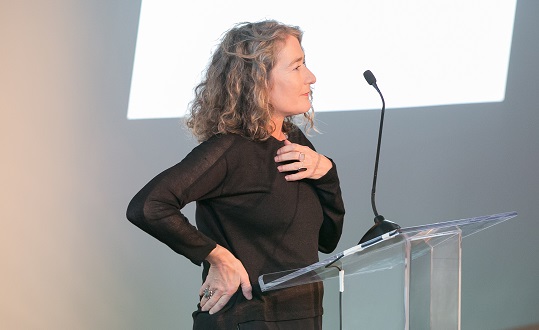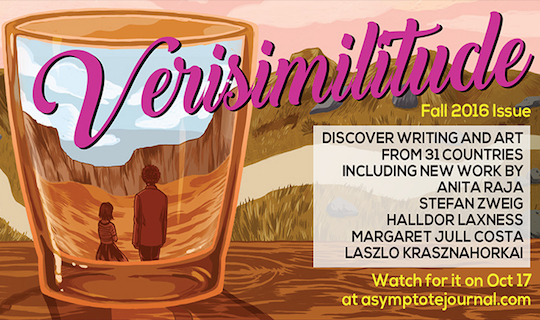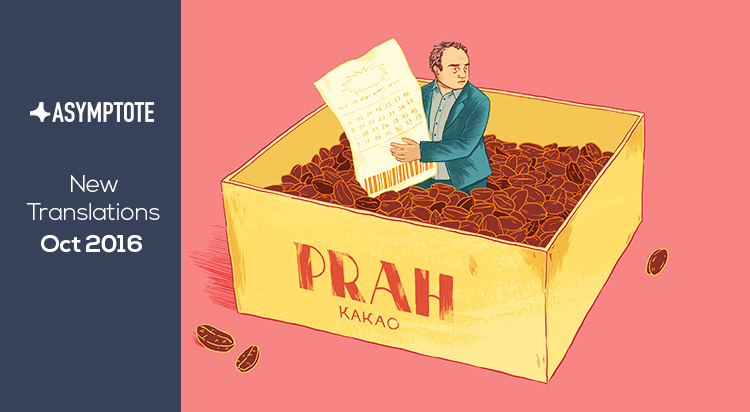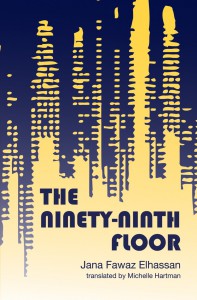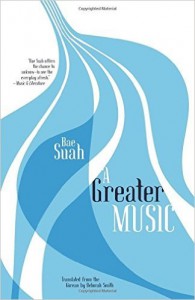This Tuesday evening marked one of the most important nights for international literature in New York (which are few and far between), and what a star-studded, city-lit affair it was. The annual Words Without Borders Gala at the spacious TriBeCa Three Sixty kicked off with a cocktail hour featuring surround views of the Manhattan skyline, reunions of old friends and co-translators, and plenty of champagne-fueled gossip. I was feeling a bit out of place (unpublished, fluent enough in just one foreign language) and wary of the champagne (knowing I might need to form complete sentences in front of Edith Grossman later).
But the atmosphere overall was decidedly celebratory. When I chatted with Words Without Borders’s founding chairperson, the retired newspaper man Jim Ottaway, we noted that perhaps this air of goodwill reflects how literature in translation is motivated more by passion than profit—there was no business to be done, no egos in the room. Translators and the community that supports them are all rooting for a common cause. “I suppose it is a nonprofit,” I said of the organization. “Very nonprofit-y,” Mr. Ottaway agreed, surveying the room.
The gala is known for being a who’s who of writers, translators, and publishing bigwigs. Everyone mingled in the rare, low-pressure environment to celebrate the online magazine that put literature from elsewhere on the United States’ map for the first time, at least in a consistent and visible way. As acclaimed translator Susan Bernofsky put it to me, “Words Without Borders has been the pioneer of this kind of publishing—it sort of gave rise to all these other great journals and now there’s a whole fantastic landscape, which I’m really happy about.”

WWB translators reading poetry both in the original language and in English for the guests
Throughout the cocktail portion, groups of guests taking advantage of the unusually formal occasion, by publishing standards, to dress in understated black ensembles and sensible heels posed for photos in front of a red-carpet-style, Words Without Borders backdrop. Calls of “how have you been?” bounced off the floor-to-ceiling windows as familiar faces caught sight of more familiar faces, reinforcing the completely true notion that everyone in publishing—especially of translated literature—knows each other. Refined cheek pecks were quickly followed by earnest probes of “what are you working on now?” in keeping with the crowd. We all wanted to know what we had to look forward to next season or next year. María José Jiménez told WWB Communications Coordinator Savannah Whiting about translating a novel by Uruguayan writer Rafael Courtoisie with Anna Rosenwong. Ms. Bernofsky had just turned in a new Jenny Erpenbeck translation the day before. Natasha Wimmer and agent Cristóbal Pera chattered in Spanish about the Wimmer’s current project—translating El Comensal by Grabriela Ybarra, which is also in development for a film, according to Pera. I felt very excited and also as if I were just assigned a lot of homework—a feeling familiar to any avid reader.

